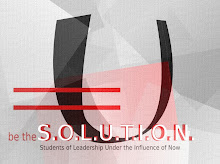On January 12, 2009 at around 5:00pm eastern time, the Earth shook in Haiti. Then, people screamed, and then they cried. Then, many of them died—at least hundreds of thousands did according to the estimate of Haiti’s Prime Minister. And, ever since that day, people of many nations, races, and creeds have stood by the people of Haiti by offering their support. I am amazed, once again, by the hearts of people when touched by tragedy.
The best way to understand tragic nature of what happened in Haiti is to start where the event started for each one of us who heard about what took place. When I heard the news, I was at a Mexican restaurant eating dinner with an old friend. Ironically, I received word through her during a time that was supposed to be allocated for catching up on past events in our lives. She heard something about a tragedy in Haiti and, in an unsure fashion, passed word to me, as the arroz y pollo sizzled on the table. When I got home, I saw new stories on what had happened , and I was shocked.
This is where tragedy begins. The irony of the position I was in when I heard about the earthquake is the similarity it has to the position of people in Haiti right before the Earth shook. This does not mean that all the people of Haiti were sitting around Haiti eating Mexican food. However, I imagine many of them were going through a normal day; talking to a loved one, coming home from a hard day’s work, working on a homework assignment, shopping, playing a game, or maybe even catching up with a friend over a nice meal. I hope that you can think about where you were when you heard about Haiti—be it watching the news, riding in the car, or talking to a friend or loved one—and think about what it would have been like had the Earth shook at that moment causing you to lose everything. This is what makes tragedy so shocking.
Comparing the Haitians’ tragedy to the American experience, however, is in a way an injustice. Looking at Hurricane Katrina that struck New Orleans, LA in 2005, some of the poorest people in the country lost their homes, loved ones, and thousands lost their lives. This time, the poorest people on this side of the planet lost what little they already had for which to live. Now, we turn on our televisions, radios, computers, and cellular phones to see and hear the people, who already had nothing, continue to lose. It as if life decided the drowning man was not sinking fast enough. Therefore, he decided to tie an anchor to his foot. Haiti’s tragedy is unique.
We need to keep the people of Haiti in our hearts and prayers. They have endured an experience that we can only begin to imagine. It is hard for many of us to grasp what it is like to go throughout our days having literally nothing, and it almost impossible for us to fathom what it must be like to for tragedy to strike us while standing on the bottom. So, what better reason do we have to step in and donate our money and/or our time to help these people? I applaud the people around the world who have shown their support as much as, and often much more than, I. Lastly, I hope that this makes your heart shake, and you decide to help these people. Tragedy is the problem. Be a part of the SOLUTION.
OxyJon
Sunday, January 17, 2010
Subscribe to:
Post Comments (Atom)








No comments:
Post a Comment